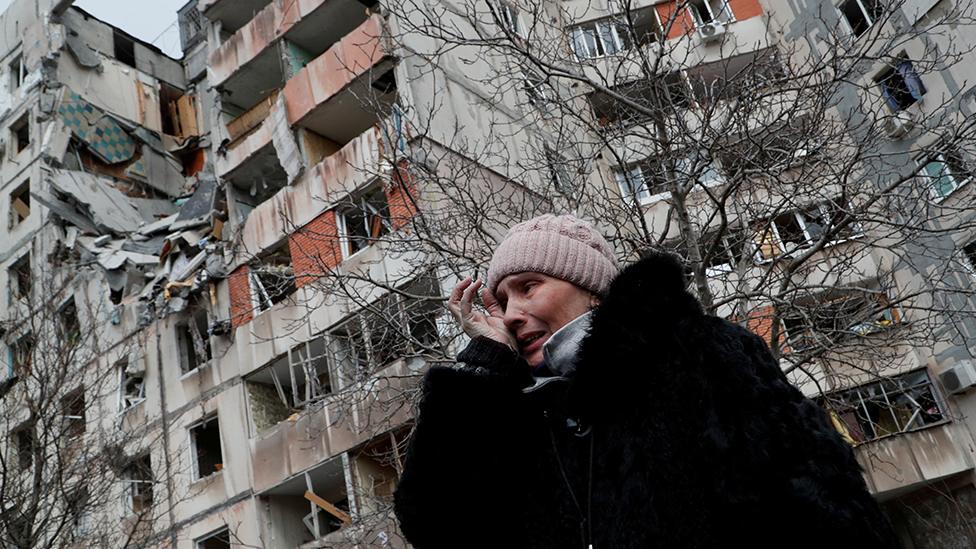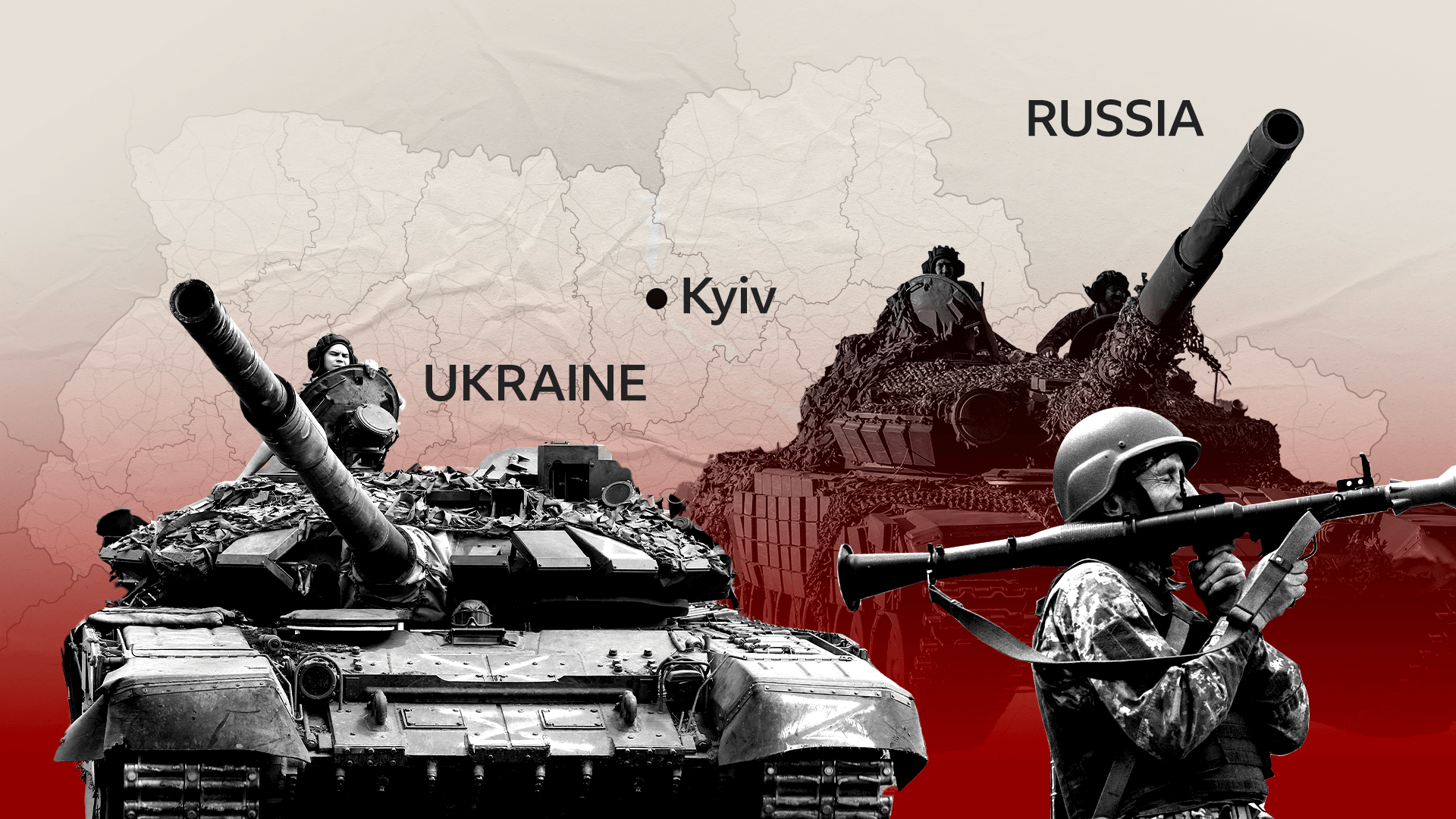Ukraine war: Mariupol fighters' relatives tell of bitter pride
- Published
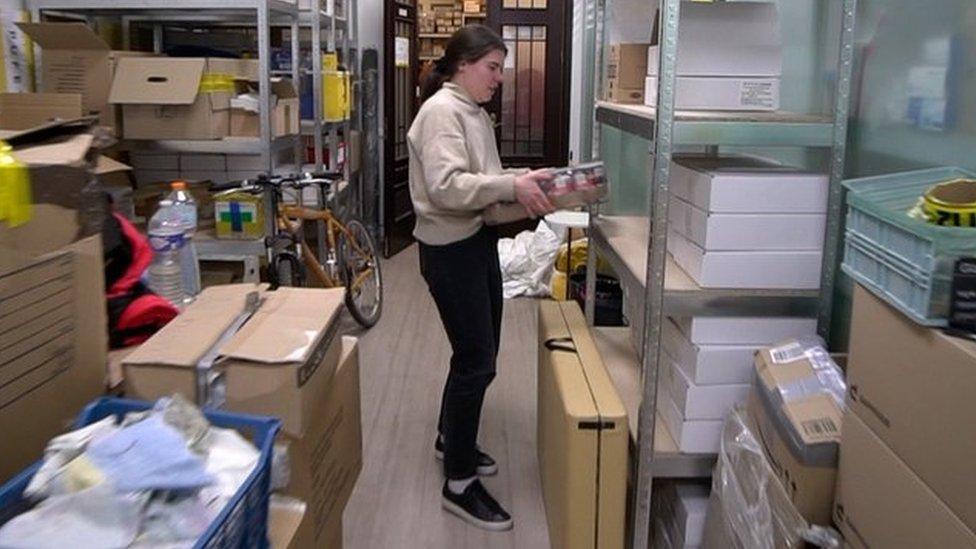
Olena's cousin is fighting in Mariupol
Olena Nikulina pauses, her eyes welling up.
"I was thinking what would happen if I would receive a message that Maks has died, what would I do?", she says. "And I just started crying in the middle of the street because I don't have any answer to that."
We are sitting in the office of her volunteer centre in Kyiv, where boxes of supplies - food, medical kits and armoured vests - are being gathered to be sent off to Ukrainian forces on the eastern front: the epicentre of the Russian offensive.
Her sense of purpose is twofold: her nation and her family, with her 26-year-old cousin Maksim, or Maks for short, fighting in Mariupol.
The boy she grew up with, whom she describes as a kind and respectful engineering student, is one of the last remaining Ukrainian defenders holed up in the Azovstal steel plant in the city, somehow withstanding the ferocious firepower of one of the world's biggest armies.
Perhaps a couple of thousand soldiers and civilians are there, in the Cold War-era network of bunkers and tunnels, where food, water and time are running out. For more than a month she had no word from him but spoke to him briefly this week.
"He never told us about the real conditions, probably he didn't want to upset us", she says. "But they have very little food and medical supplies - and it's harder and harder to treat wounded soldiers."
Growing up in Sumy, north-eastern Ukraine, Maks's mother - Olena's aunt - wanted him to join the army, calling it "a school of life for men".
When he was called to fight in Mariupol, she was initially relieved, thinking the city, a little further along the coast from the occupied territories of the Donbas, would be spared the worst.
But Russia is determined to establish a land corridor through eastern Ukraine to Crimea - and that would have to run through Mariupol. And so Russian forces have besieged it for some seven weeks. Ukraine's President Volodymr Zelensky said tens of thousands may have died in the city.
Watch: Olena Nikulina says her cousin has become "a true hero of Ukraine"
"I feel terrible about him being there", says Olena, struggling to hold back her tears. "First of all, I feel very sorry about not speaking to him as much as I could while we still had a connection. It felt terrible when my aunt sent me a message at 06:00 to say that Maks' friend was probably dead and she's so worried about him."
I ask of the pride she must feel towards the boy who used to drive her in his car - and became a Ukrainian fighter who refused Russia's demands to surrender.
"I would have never imagined my cousin to become a true hero of Ukraine and of Mariupol", she replies with a smile. "It's obviously a very bitter sense of pride in the sense that he's in a life-threatening situation. I dream of the day he will return and I will be able to tell this to him."
On the shelves in the volunteer centre are spoils of war: Russian soldiers' equipment, downed missiles and fragments of a Russian fighter jet that the Ukrainians proudly exhibit as symbols of an invasion that has so far not gone Moscow's way.
But the Kremlin will surely be determined that the eastern offensive does not repeat the mistakes of the west, from where Russian troops have now retreated.
Russian President Vladimir Putin is thought likely to want a tangible gain by 9 May - the annual commemoration of Victory Day against Nazi Germany - and Mariupol could serve him that.
That's a fear shared by another relative, Vladimir Vasilyuk, whose 23-year-old son Danilo is also fighting in the Azovstal plant. They're still in regular contact.
"The boys are lacking ammunition", Vladimir says, "but they don't want to leave because they're protecting the civilians - they don't want to abandon them."
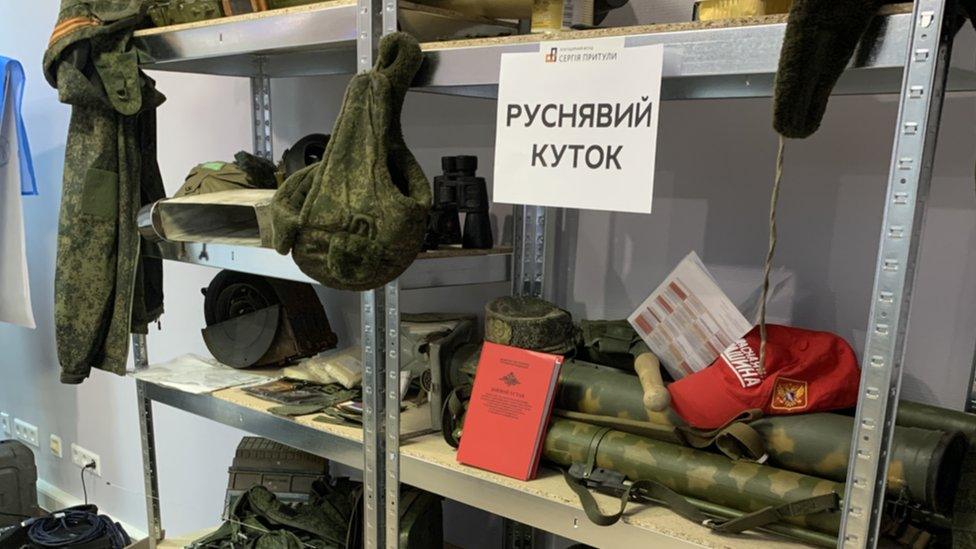
Russian service equipment on show at the volunteer centre
His composed, almost impassive look begins to break as he talks more of his only child, lowering his eyes with a sharp intake of breath.
"I don't sleep at night", he admits. "If I had a chance to go there, I would. I don't think the city is worth the loss of his life. But the boys made their choice.
"Maybe it's my fault that he joined the army, because I always took him to training and I prepared him for it", he adds. "His main goal was always to make our country better."
We stand beneath a monument in Kyiv covered up by sandbags spray painted in the blue and yellow of the Ukrainian flag. The bells of the golden-domed St Michael's Church chime five.
"I am sure we will see each other again", Vladimir says, "it's a matter of time. But if I could pass a message to him now it would be that I love him and I'm waiting for him."

War in Ukraine: More coverage
EXPLAINED: Why Russia wants to seize eastern Donbas
ON THE GROUND: Tourist town braces for assault
CHILDREN: 'He would see tanks in his dreams'
READ MORE: Full coverage of the crisis, external

Related topics
- Published18 April 2022
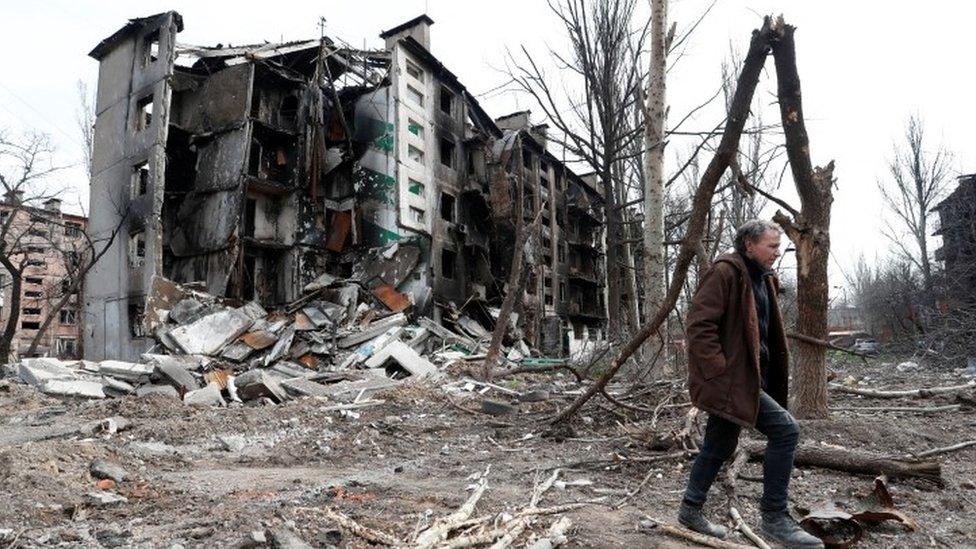
- Published13 April 2022
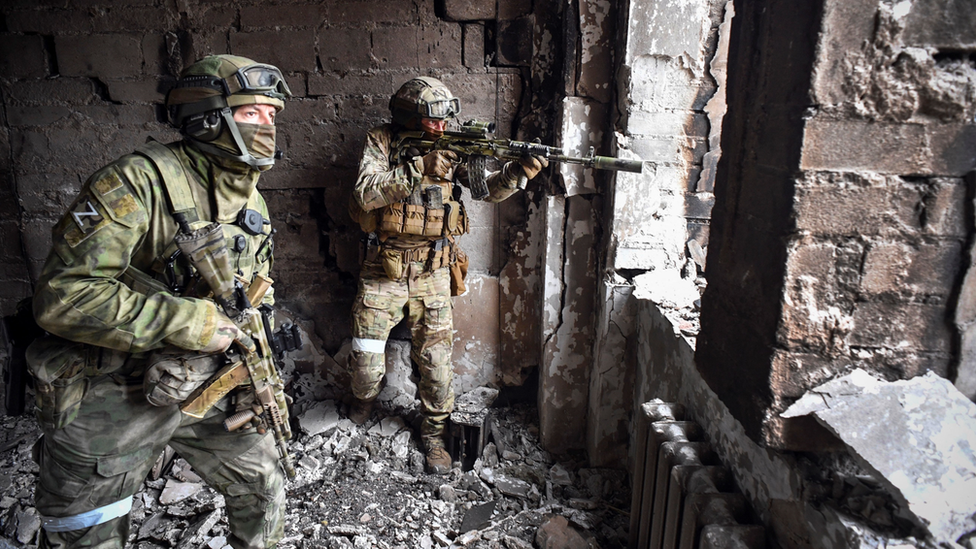
- Published21 March 2022
